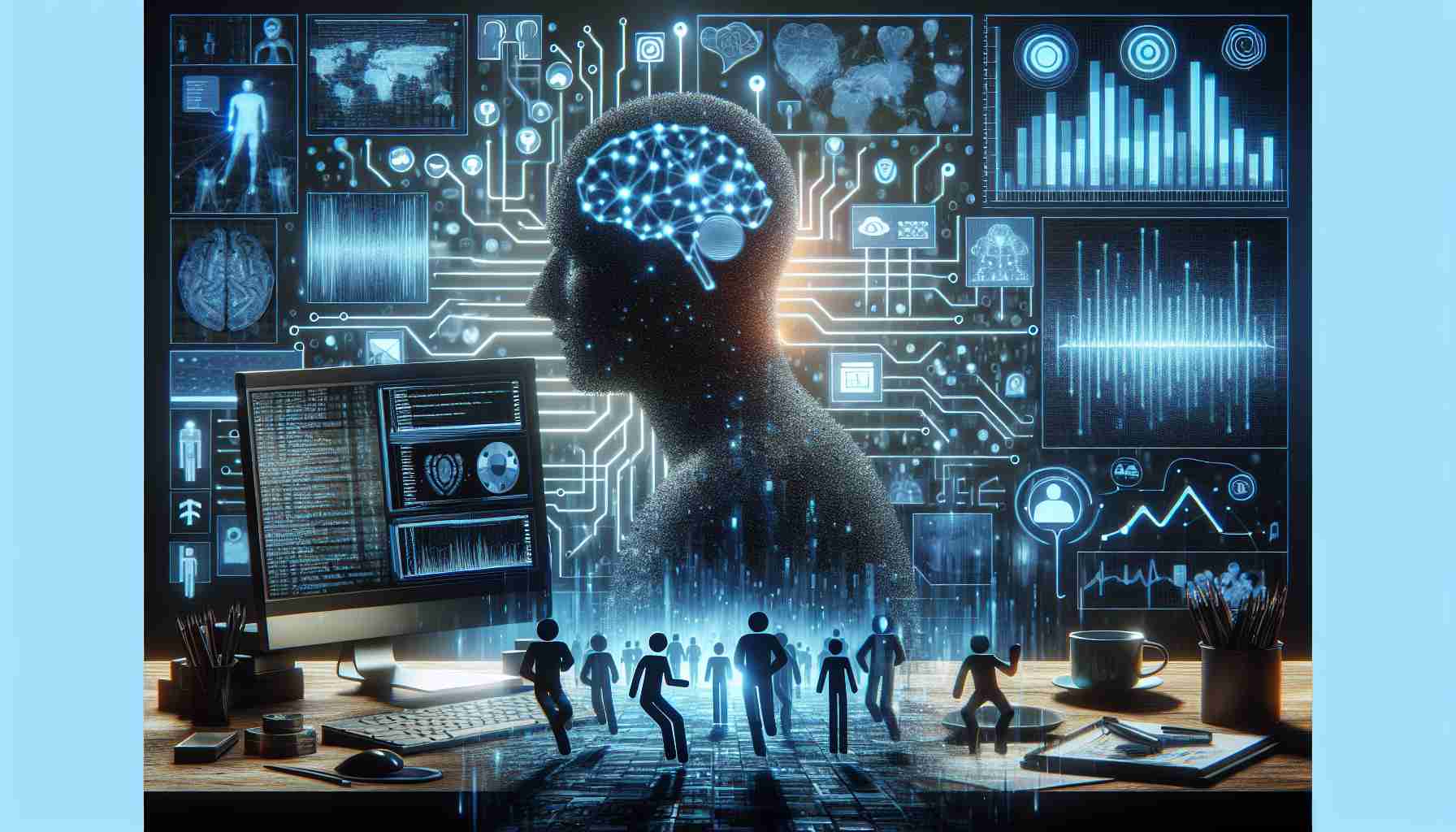Artificial intelligence (AI) has shown immense potential in revolutionizing various sectors, particularly in healthcare. One fascinating application of AI is its ability to analyze social media data to detect signs of depression. However, a recent study has brought to light a significant challenge concerning the effectiveness of AI models in identifying depression signals across different racial groups.
In the study, researchers employed an “off the shelf” AI tool to scrutinize the language used in social media posts from 868 volunteers. These volunteers comprised an equal number of Black and white adults with similar age and gender characteristics. Additionally, all participants completed a validated questionnaire commonly utilized in healthcare settings to screen for depression.
Prior research suggested that individuals who frequently utilize first-person pronouns and certain word categories are at heightened risk for depression. Surprisingly, the latest study revealed that these language associations were only relevant for white individuals and did not hold true for Black individuals. This finding underscores the imperative need to incorporate diverse racial and ethnic data when training AI models for healthcare-related functions.
The authors of the study expressed astonishment at the lack of transferability of these language associations across racial groups. Their report, featured in PNAS, highlights the oversight of race in earlier research concerning language-based evaluation of mental illnesses.
While social media data alone cannot serve as a diagnostic tool for depression, it can aid in risk assessment for individuals or communities. By analyzing language patterns, valuable insights into the mental health of populations can be attained, assisting healthcare providers in addressing mental health issues more efficiently.
The potential applications of AI in mental healthcare are extensive. In a previous study by the same research team, language analysis on social media platforms was utilized to assess mental health within communities amid the COVID-19 pandemic. Furthermore, language patterns indicating depression on social media have proven beneficial in predicting the probability of treatment discontinuation and relapse among patients with substance abuse disorders.
Mitigating the disparity in the effectiveness of AI models across racial groups is vital for ensuring equitable mental healthcare. Future research should prioritize data inclusivity by integrating diverse racial and ethnic groups to develop AI models that deliver precise and dependable results for everyone.
**Frequently Asked Questions (FAQ)**
– *Can AI models accurately detect depression through social media analysis?*
AI models exhibit promise in identifying depression indicators via the analysis of language patterns in social media posts. Nonetheless, it is crucial to note that social media data alone cannot diagnose depression.
– *What did the recent study unveil about the effectiveness of AI models across different racial groups?*
The study disclosed that AI models were over three times less predictive for depression in Black individuals compared to white individuals when utilizing social media data. This underscores the necessity of incorporating diverse racial and ethnic data when training AI models for mental healthcare applications.
– *What were the notable language associations for depression identified in the study?*
The study found that language associations such as “I-talk” (self-focused attention), self-deprecation, self-criticism, and feeling like an outsider were indicators of depression solely for white individuals, not for Black individuals.
– *How can social media data contribute to mental health assessment?*
Social media data can contribute to risk assessment of individuals or communities, offering insights into the mental well-being of populations. It serves as a valuable tool for addressing mental health challenges more effectively.
– *What are the potential applications of AI in mental healthcare?*
AI-powered analysis of language patterns on social media can help evaluate mental health within communities, track the impact of significant events like the COVID-19 pandemic, and provide insights into the likelihood of treatment discontinuation and relapse for patients with substance abuse disorders.
**Sources:**
The source of the article is from the blog shakirabrasil.info
